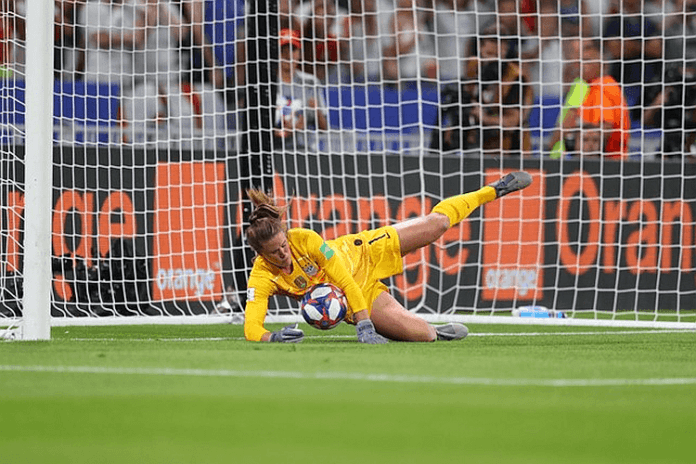News, views and noise from the non-stop, worldwide circus of Olympic sport:
● Athletics ● The German ARD network managed to obtain a copy of the indictment brought by the French authorities against former IAAF President Lamine Diack, his son Papa Massata Diack and four others associated with them, including the IAAF’s own anti-doping chief, Gabriel Dolle (SUI), and the IAAF’s Russian Treasurer, Valentin Balakhnichev.
Its report details corruption on a grand scale, including €3.45 million (~ $3.9 million U.S. today) in extortion payments from athletes who had tested positive for doping, “crooked” licensing and sponsorship deals, vote-buying in national federation elections and more.
Three members of the International Olympic Committee have stepped down from involvement with the Diacks, and receipt of money from Papa Massata Diack. From the story: “‘The roles were clearly defined: the father led the organisation, and the son negotiated contracts on his father’s behalf. This interaction between father and son alone enabled the son to get rich over the years with this father’s support,” the investigators wrote in their report.”
There is also mention of possible doping by British athletes, and questions raised about the selection of Qatar to host the 2022 FIFA World Cup and the upcoming 2019 IAAF World Championships.
How ridiculous did it get? The story says Papa Massata Diack spent about €1.7 million (~$1.9 million U.S. today) buying fancy watches at a chic Paris boutique! The trial is expected to begin before the end of the year, with Papa Massata Diack still in Senegal, with the government there refusing to extradite him to France.
● Basketball ● Los Angeles lost the World Urban Games over a disagreement with the Global Association of International Sports Federations (GAISF) on the scope of the event. Last week, the International Basketball Federation (FIBA) confirmed that Los Angeles will be the host of the 3×3 World Cup – the world championship – from 2020 to 2023.
That’s really what the Los Angeles Times – the proposed organizer of the World Urban Games – wanted, as the centerpiece of a planned L.A. Street Festival that will be held for the first time from 20-21 September in El Segundo, California, near the new Times facility. According to the announcement, “The festival will feature FIBA 3×3 basketball, esports competitions, side contests, dunking, music, break dancing, gaming activations and kids play zones to entertain the public at the event and through digital platforms and broadcast.”
The FIBA 3×3 World Tour Masters will be held during the event.
● Cycling ● The Union Cycliste Internationale (UCI) announced a major change in its World Cup program for track cycling, including:
“[T]he number of rounds of the series will go from six to three, and these will no longer be organised from October to January but between July and September, starting in 2021. Moreover, the World Cup will change its name to the UCI Track Cycling Nations’ Cup. As the name suggests, participation will be reserved uniquely for national teams.”
The World Track Cycling Championships will move as well, from March to October. A new track series will be created from November to February in 2021-22, again based on national teams.
These changes were met with a storm of protest from non-national cycling teams which have had considerable success on the existing Track World Cup circuit, such as the British Huub-Wattbike team. In an open letter to the UCI, the club wrote that “putting our personal situation aside, we feel the changes are brutally destructive to the sport we know and love,” by eliminating trade teams and bringing the road and track calendars into conflict. The Beat Cycling Team similarly complained that the new approach will lose sponsors, become less visible and will have fewer opportunities for athletes.
So far, the UCI hasn’t budged, but as the changes won’t start until 2021, the talking is far from over. (Hat Tip to reader Jan Palchikoff for referrals to the team letters.)
● Equestrian ● The World Equestrian Games appeared to be doomed after the event was abandoned by Bromont (CAN) in advance of the 2018 edition, and then the event as organized in Tryon, North Carolina (USA) was less than satisfactory to some.
It’s not cheap to organize, bringing together all seven disciplines of the equestrian world, but it may not be dead after all.
Italy (for Rome and Verona) and Saudi Arabia (for Riyadh) filed proposals to the Federation Equestre Internationale (FEI) to host the complete World Equestrian Games in 2022. The FEI decided it would accept bids for individual championships, or multiple events, short of the complete World Equestrian Games, and got an excellent response.
Bids for one or more FEI world championships were filed by Denmark, Estonia, Hungary, Ireland, the Netherlands, Slovakia, the UAE and the U.S. (Reining and Vaulting in Scottsdale, Arizona).
The FEI Board will decide who gets what at the FEI General Assembly in Moscow (RUS) in November.
● Synchronized Swimming ● You may not think that concussions and synchronized swimming are all that related, but the U.S. National Governing Body for the sport is undertaking a wide-ranging initiative to ensure any risk is well covered.
USA Synchro revealed a first-of-its-kind partnership with TeachAids to promote its CrashCourse concussion education program. It will be taught to coaches and presented to synchro competitors in-person at national competitions, and online, allowing athletes to earn a certificate of completion. The program is available here.
≡ REAX ≡ This is pretty serious stuff and USA Synchro is to be commended for bringing this program to its members. What we are seeing – slowly – is the formation of a comprehensive personal safety and anti-abuse curriculum for athletes in the Olympic sports that will eventually accompany athletic training as part of the experience of participating in organized Olympic-sport youth programs in the country.
If successful, this kind of instruction will inevitably spread to schools and non-governmental youth organizations like the Boys and Girls Clubs, and non-Olympic programs like Little League and AAU basketball. It’s a good idea if done well and it will take time to develop. It’s a concept that – if picked up and promoted nationally – could help the United States Olympic and Paralympic Committee and its National Governing Bodies become leaders in preventive safety for athletes instead of breeding grounds for predators.
● Swimming & Triathlon ● USA Swimming and USA Triathlon announced a partnership to allow open-water swimmers to race in the swimming portion of the new Legacy Triathlon on 19 July in Long Beach, California and the Toyota USA Triathlon Age Group National Championships in Cleveland, Ohio on 9 August.
≡ REAX ≡ This furthers the ties between USA Swimming and USA Triathlon and creates more opportunities for both NGBs, as well as U.S. Masters Swimming. In other words, this is a smart idea, since, as the announcement noted, “USA Triathlon, USA Swimming and U.S. Masters Swimming share many of the same members, making the partnership a natural fit.”
● At the BuZZer ● USA Swimming disclosed the start of ticket sales for the 2020 U.S. Olympic Trials in Omaha, Nebraska next 21-28 June. A pass for all 15 sessions – prelims and finals – costs from $375-575 depending on location, with 100 “Victory Row” passes on the pool deck available for $1,300 each.
That’s $25.00-38.33 per session for all-Trials ticket, which is a lot less than you’d pay for a bad seat for a game between two awful NBA or NHL teams. Even the pool-deck seats are $86.67 per session, which is about what you’ll pay for parking at some MLB or NFL stadiums!


























